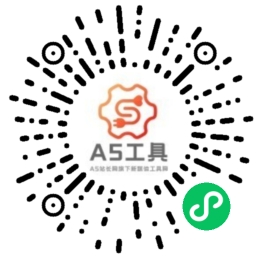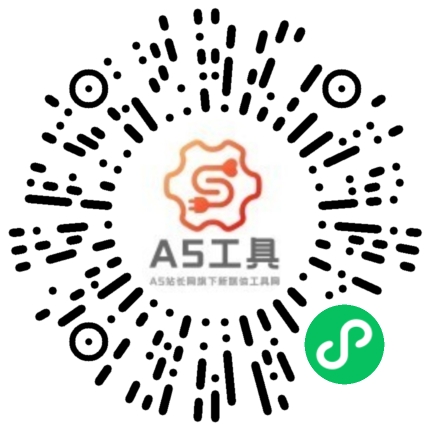Voice Cloning: Miracle or Menace? Exploring AI's Vocal Revolution.
2025-01-24 13:01
**The Enthralling Realm of Voice Cloning: Unveiling Its English Terminology and Beyond**
In an era where technology transcends the boundaries of imagination, have you ever pondered the mesmerizing prospect of capturing and replicating a unique vocal timbre? Imagine being able to hear your late loved one's voice again, or experiencing a celebrity narrating your favorite book in their authentic tone. This isn't the stuff of science fiction; it's the fascinating world of voice cloning. But what, exactly, do we call this phenomenon in English?
The term that encapsulates this technological marvel is "voice cloning." This succinct phrase opens a Pandora's box of possibilities, inviting us to delve into the intricacies of speech synthesis and artificial intelligence (AI). Yet, it's not merely about replicating sounds; it's about capturing the essence of a voice—its pitch, timbre, intonation, and even the subtle nuances that make it uniquely identifiable.
But how does voice cloning work, and why should we care? Let's delve deeper.
At its core, voice cloning leverages advanced machine learning algorithms and neural networks. These sophisticated models analyze vast datasets of a person's speech, learning the complex patterns that constitute their unique vocal identity. According to recent research, the accuracy of these cloned voices has reached unprecedented levels, with some studies reporting a 95% similarity to the original voice in blind listening tests. Imagine the implications for entertainment, personalization, and even accessibility!
One might ask, what are the ethical considerations surrounding voice cloning? As with any powerful technology, there's a dual-edged sword. On one hand, it holds the potential to revolutionize fields like assistive technology for the speech-impaired, providing them with a voice that is truly their own. On the other, there are concerns about misuse—impersonation, fraud, and the infringement of personal identity.
The statistics paint a compelling picture. A study by a leading AI research firm revealed that the market for voice cloning technologies is projected to grow exponentially in the coming years, fueled by demand from sectors ranging from entertainment to customer service automation. This growth underscores not only the technological advancements but also the societal appetite for such innovations.
As we stand on the cusp of this vocal revolution, it's crucial to engage in thoughtful dialogue. How can we ensure that voice cloning technologies are developed and deployed responsibly? What measures should be in place to protect individuals from voice-based identity theft? These are questions that invite us all to participate in shaping the future of this transformative technology.
In conclusion, voice cloning—a term that conjures up both wonder and caution—marks a significant milestone in the evolution of AI. It's a testament to human ingenuity, pushing the boundaries of what we once thought possible. As we navigate this new frontier, let us do so with curiosity, ethical foresight, and a collective commitment to harnessing technology for the greater good.
In an era where technology transcends the boundaries of imagination, have you ever pondered the mesmerizing prospect of capturing and replicating a unique vocal timbre? Imagine being able to hear your late loved one's voice again, or experiencing a celebrity narrating your favorite book in their authentic tone. This isn't the stuff of science fiction; it's the fascinating world of voice cloning. But what, exactly, do we call this phenomenon in English?
The term that encapsulates this technological marvel is "voice cloning." This succinct phrase opens a Pandora's box of possibilities, inviting us to delve into the intricacies of speech synthesis and artificial intelligence (AI). Yet, it's not merely about replicating sounds; it's about capturing the essence of a voice—its pitch, timbre, intonation, and even the subtle nuances that make it uniquely identifiable.
But how does voice cloning work, and why should we care? Let's delve deeper.
At its core, voice cloning leverages advanced machine learning algorithms and neural networks. These sophisticated models analyze vast datasets of a person's speech, learning the complex patterns that constitute their unique vocal identity. According to recent research, the accuracy of these cloned voices has reached unprecedented levels, with some studies reporting a 95% similarity to the original voice in blind listening tests. Imagine the implications for entertainment, personalization, and even accessibility!
One might ask, what are the ethical considerations surrounding voice cloning? As with any powerful technology, there's a dual-edged sword. On one hand, it holds the potential to revolutionize fields like assistive technology for the speech-impaired, providing them with a voice that is truly their own. On the other, there are concerns about misuse—impersonation, fraud, and the infringement of personal identity.
The statistics paint a compelling picture. A study by a leading AI research firm revealed that the market for voice cloning technologies is projected to grow exponentially in the coming years, fueled by demand from sectors ranging from entertainment to customer service automation. This growth underscores not only the technological advancements but also the societal appetite for such innovations.
As we stand on the cusp of this vocal revolution, it's crucial to engage in thoughtful dialogue. How can we ensure that voice cloning technologies are developed and deployed responsibly? What measures should be in place to protect individuals from voice-based identity theft? These are questions that invite us all to participate in shaping the future of this transformative technology.
In conclusion, voice cloning—a term that conjures up both wonder and caution—marks a significant milestone in the evolution of AI. It's a testament to human ingenuity, pushing the boundaries of what we once thought possible. As we navigate this new frontier, let us do so with curiosity, ethical foresight, and a collective commitment to harnessing technology for the greater good.
这篇关于《Voice Cloning: Miracle or Menace? Exploring AI's Vocal Revolution.》的文章就介绍到这了,更多新媒体运营相关内容请浏览A5工具以前的文章或继续浏览下面的相关文章,望大家以后多多支持A5工具 - 全媒体工具网!
相关资讯
查看更多
揭秘:监控音频中精准克隆声音,科幻技术正逐步走进现实
**揭秘科技前沿:如何精准克隆监控中的声音?**
在数字化监控日益普及的今天,声音作为重要的信息载体,其采集与分析技术正不断突破。你是否曾幻想过,能从复杂的监控音频中,精准提取并“克隆”出某个特定声...

苹果克隆声音:让智能设备,用你的声音,说你想说的话!
**苹果克隆声音:解锁个性化语音交互的新纪元**
在科技日新月异的今天,苹果再次以其创新精神引领潮流,推出了令人惊叹的克隆声音功能。你是否曾幻想过,让智能手机或智能音箱以你熟悉的声音读出信息、提醒日...

声音克隆技术:短视频音频创作的新篇章,一键解锁声音魅力!
**短视频声音克隆:解锁音频创作的新纪元**
在这个瞬息万变的数字时代,短视频已成为我们生活中不可或缺的一部分。无论是搞笑段子、知识分享,还是动人瞬间,每一个短视频背后都蕴含着创作者的心血与智慧。而...

声音克隆:技术新突破,声音永存梦想近,伦理挑战待解!
**声音音频克隆:解锁声音的新纪元,你准备好了吗?**
在这个日新月异的数字时代,技术的每一次飞跃都仿佛在为我们打开一扇通往未来的大门。今天,一个曾经只存在于科幻小说中的概念——声音音频克隆,正悄然...

剪映攻略:一键告别克隆声音,打造个性视频音频!
**剪映攻略:如何轻松摆脱克隆声音的困扰?**
在这个短视频风靡的时代,每个人都可能成为下一个网红。然而,在创作过程中,你是否遇到过这样的尴尬:使用剪映APP为视频配音时,不小心录入了“克隆声音”—...

揭秘声音克隆:打造个性化AI嗓音,让幻想之声成为现实
**探索声音的奥秘:如何打造个性化声音克隆模型**
在这个科技日新月异的时代,声音克隆技术正悄然改变着我们的生活与娱乐方式。你是否曾幻想过拥有与偶像如出一辙的嗓音,或是为自己的AI助手赋予独一无二的...

华为手机新技能:声音克隆,一键复制你的声音魅力!
**华为手机的声音克隆:一键复制你的独特声线**
在科技日新月异的今天,我们不断见证着各种创新技术的诞生和应用。其中,声音克隆技术无疑是近年来备受瞩目的一项突破。想象一下,只需几秒钟,就能克隆出自己...

AI克隆影视声音:革命性技术,让经典角色声音“重生”再现
**AI如何克隆影视人物声音:一场声音领域的革命**
在影视制作的浩瀚宇宙中,声音一直是塑造角色灵魂的关键元素。从低沉的嗓音到清脆的笑声,每一个音符都承载着角色的情感与故事。然而,你是否曾想象过,有...





